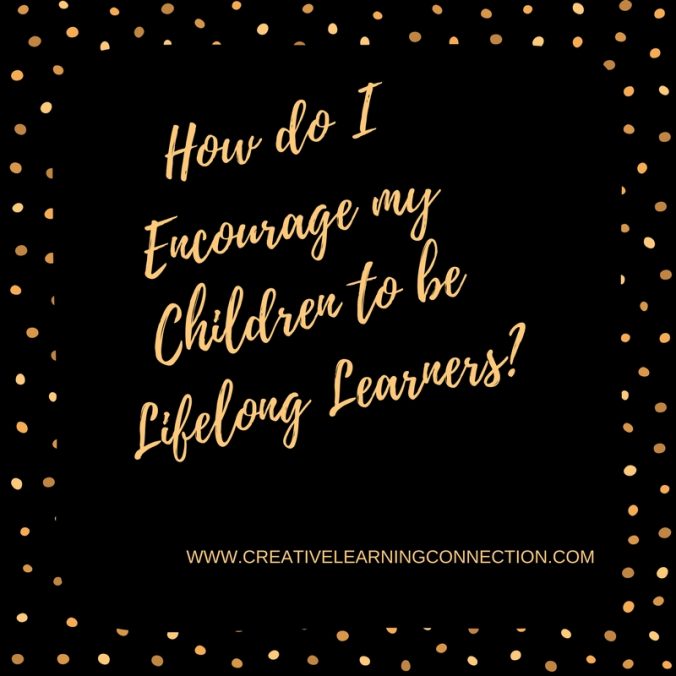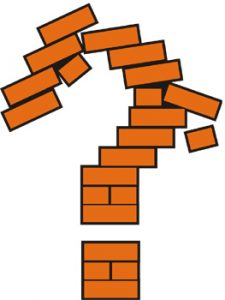Questions Homeschoolers Ask Themselves
Along the way to finishing our homeschooling journey, I asked myself the same questions most homeschoolers ask themselves at some point: What are our goals? What do my children/students really need to accomplish before they graduate?
Ultimately, I distilled those questions down to what I consider to be the most critical question: How do I encourage my children to learn? (And as part of that question – to want to learn?)
 Encouraging our Students to Learn
Encouraging our Students to Learn
Can’t we honestly say that everything we are trying to accomplish in teaching can be boiled down to that question: How do we encourage our students to learn?
We can disagree on what they should learn, maybe even why they should learn certain things, but regardless of how long our children learn at home – our ultimate goal might best be stated as “We want our children to be lifelong learners.”
So, how do we accomplish that? Even if we all agree on that principle, it’s doubtful we will all agree on how to accomplish it. But, let me be so bold, after thirty-five years of home educating, to offer my thoughts on the subject:
 The Tools to Learn
The Tools to Learn
First, we have to give them the tools to learn – starting with the basics of reading and writing in most cases (there are exceptions, when students truly can’t learn those, but those are rare – and will likely be the topic of a future post). But for most of us, the ability to read well will open more doors than almost any other skill. (And, I might add, the enjoyment of reading would be a close second.)
A Desire to Learn
But more than just the tools, we need to give them a desire to learn. How many times does it seem like as the homeschool parents/teachers we’re in the business of squashing interests, rather than developing them? Let’s whet their appetite to learn new things, rather than extinguish it.
 Introducing them to New and Exciting Things
Introducing them to New and Exciting Things
We need to introduce them to new and exciting things – to expand their horizons beyond themselves. One of my favorite ways to do that has been through travel. A friend sent me Mark Twain’s quote about travel while I was on my most recent trip: “Travel is fatal to prejudice, bigotry, and narrow-mindedness, and many of our people need it sorely on these accounts. Broad, wholesome, charitable views of men and things cannot be acquired by vegetating in one little corner of the earth all one’s lifetime.” And aren’t those some of our goals as homeschooling parents?
Every time I travel I am personally motivated to learn more about my destinations – their history and culture, their people and their geography. I am glad I have been able to take my children on a fairly large number of trips during my decades of parenting/homeschooling. As Mark Twain put it so well, and I have believed for as long as I can remember, travel is a great way to increase our/their horizons,
 Opening their Minds
Opening their Minds
But if travel is not in your budget or desires, choose other ways to open their minds – books of other lands and times are a great way to pique their interests. Introduce them to new and different people. Watch movies about things that introduce them to other cultures. The list of options is endless.
 Encourage Creativity
Encourage Creativity
In addition to opening their minds in this manner, encourage creativity. Too much of school is geared towards finding “the right answer.” But how much of life is actually about finding a unique solution to a problem – troubleshooting, figuring out how to use the resources at hand? Most of that type of knowledge comes from experiences – not from the pages of a textbook.
For far too long I didn’t consider myself to be a creative person – because I’m not particularly artistic or musical (particularly compared to other members of my family). But I finally figured out that creativity manifests itself in so many other ways – such as writing. How many of our students are being deprived of creative opportunities – whether musically, artistically, or other – simply because we are too focused on getting through our textbooks?
 Logic and Thinking Skills
Logic and Thinking Skills
Similarly, work on developing logical and thinking skills. Our family plays games and puts together puzzles regularly, both of which build thinking skills and logic. (I wrote more on how important games are in a previous post.) We also used materials from Critical Thinking Press frequently – a great treasure trove of materials for “building thinking skills.”
When we have given our students the tools of learning and a taste for learning, and helped develop their creative and logical skills – what in life will they not be able to tackle?
What are others saying about this topic?
I was putting the finishing touches on this post when I saw the email from Mises Institute, with their post, “Four Reasons Why College Degrees are Becoming Useless.” Their first point mentions the importance of “critical thinking skills.” And on the FEE website I found another article specifically about creativity: “How Schooling Crushes Creativity”
So what do you think? What is important as you teach your students? How do you encourage them (and yourselves) to be lifelong learners?
Happy learning and living!
Cathy

